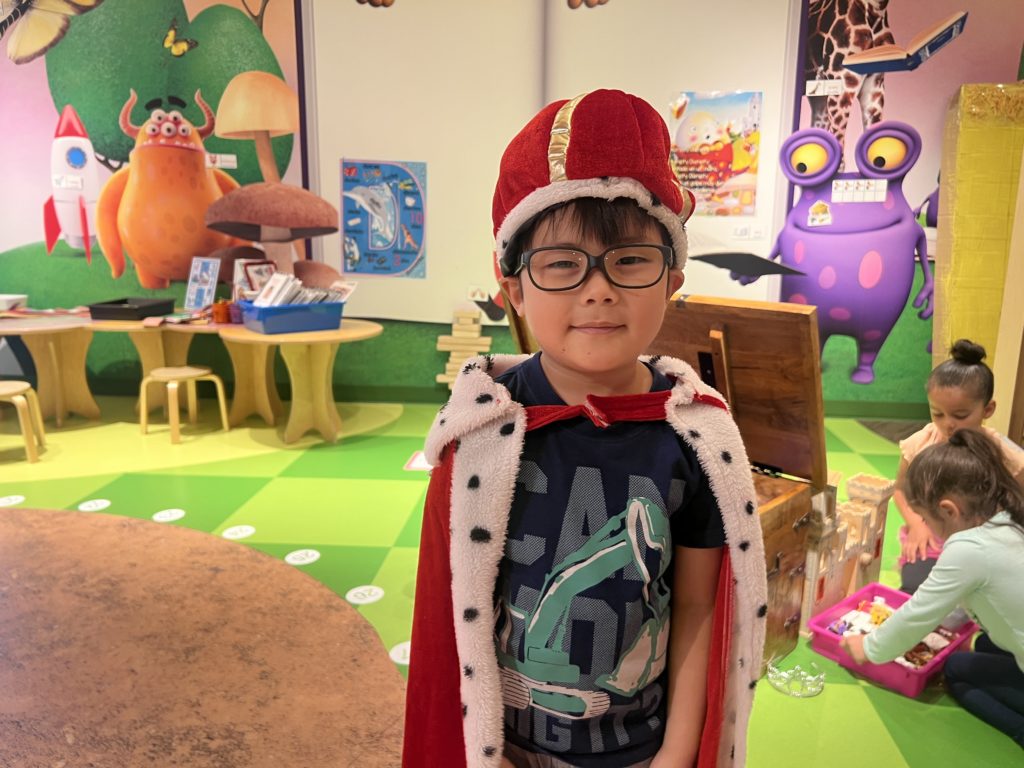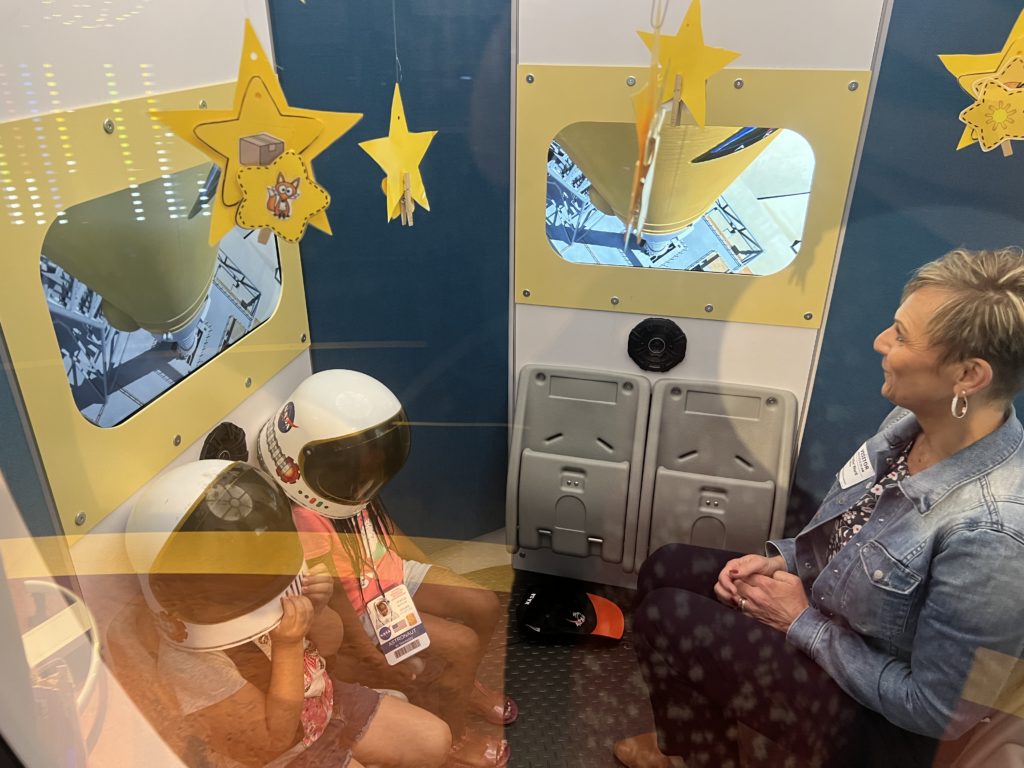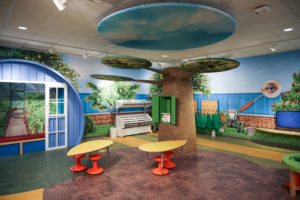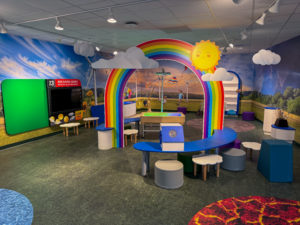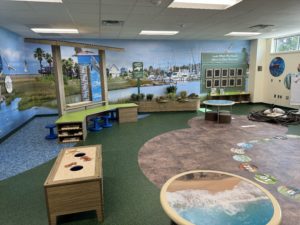Experiential learning spaces are more than just classrooms; they are transformative environments that provide students unique and impactful learning experiences. Metrics, like growth in enrollment and increased test scores, are still critical, but the true value and ROI of these experiential spaces lie in the opportunities they provide students to learn and grow.
As an early-learner, imagine you are transported to the African Savanna and surrounded by life-sized animals you’ve only read about in books—only now it’s in person, in your classroom. Or picture the student gazing in amazement at the vastness of outer space or ocean themes, experiencing the thrill of “the unknown”, exploration, and discovery firsthand. These are the kinds of experiences that Exploration Zones spaces offer—opportunities that go beyond lecture teaching, textbooks and traditional learning methods.
But how do we measure the success and ROI of these experiences? While improved test scores are one form of measurement, our observations of students’ behavior and applied interests are equally important. We can track the impact of experiential learning spaces by looking at the skills and knowledge gained through these unique experiences. For example, students in the International District theme can travel the world, exposing them to different cultures, languages, and ways of life. These experiences can lead to a deeper understanding of the world around them, fostering empathy, cultural awareness, and a broader perspective.
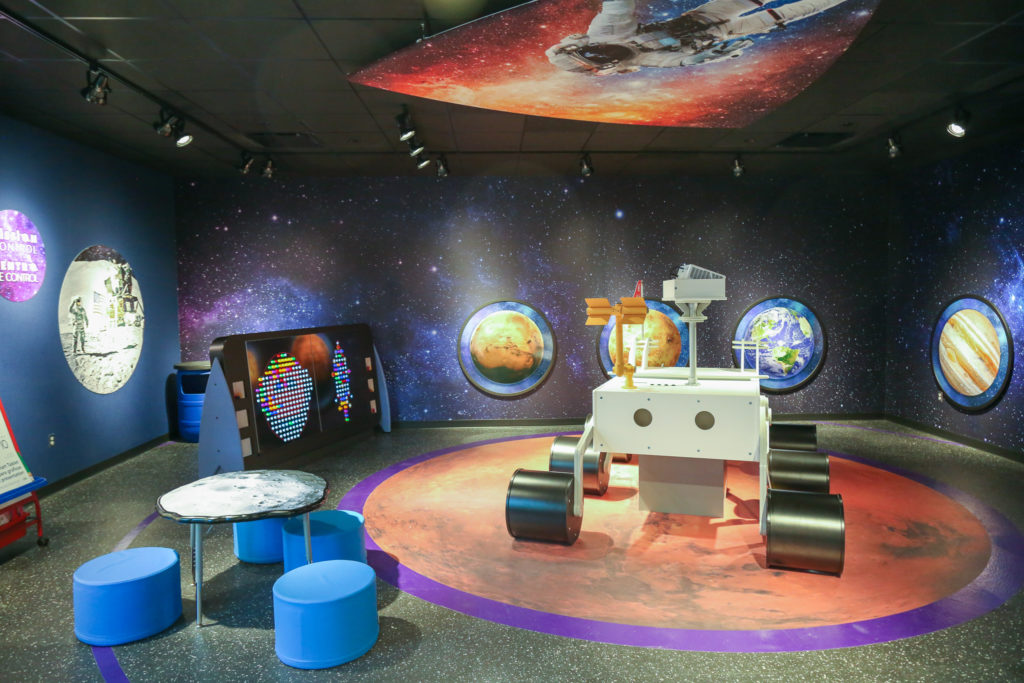
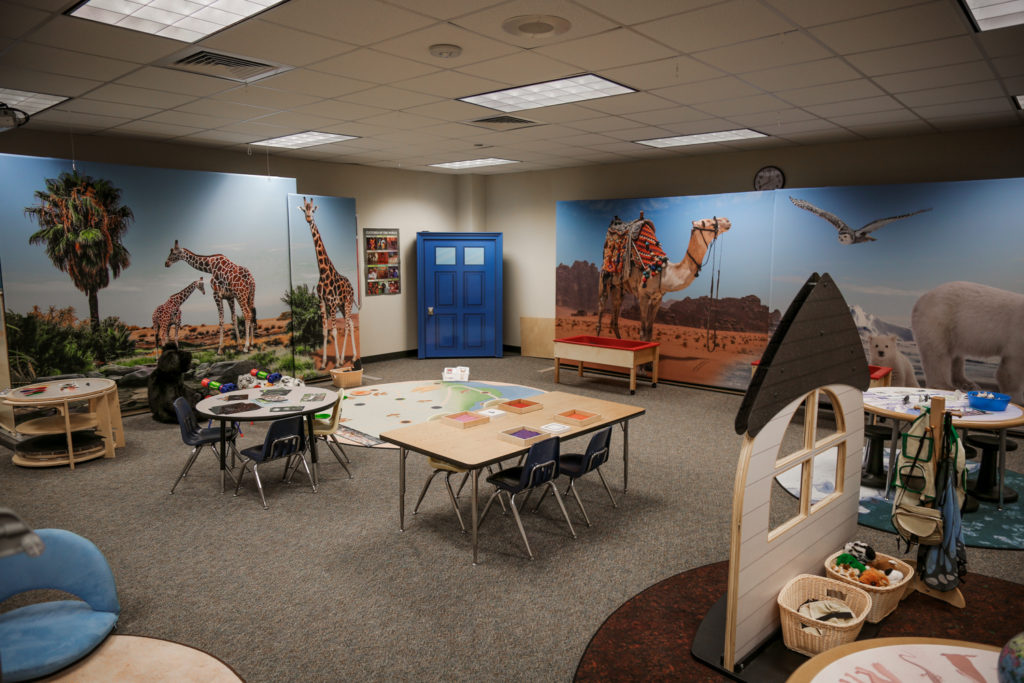
Exploration Zones spaces are designed to support specific learning objectives, such as improving vocabulary, critical thinking, problem-solving, and creativity. According to the National Association for the Education of Young Children (NAEYC), playful and experiential learning significantly enhances children’s cognitive and social skills by leveraging their natural curiosity and proclivity for exploration and problem-solving. By providing hands-on, experiential learning opportunities, our thematic spaces can help students develop these essential skills, ensuring they are well-equipped for their future endeavors.
But students are not the only people who use these classrooms or field trip destinations… these spaces positively impact educators and the overall school environment. Teachers are able to immerse themselves in these themed settings, enhancing their teaching methods and fostering a more engaging classroom experience. This has been proven to contribute to lower educator turnover rates. Additionally, educators within school districts that have invested in experiential learning environments report significantly lower behavior incidents among students, as the engaging and stimulating atmosphere helps maintain student interest and enthusiasm.
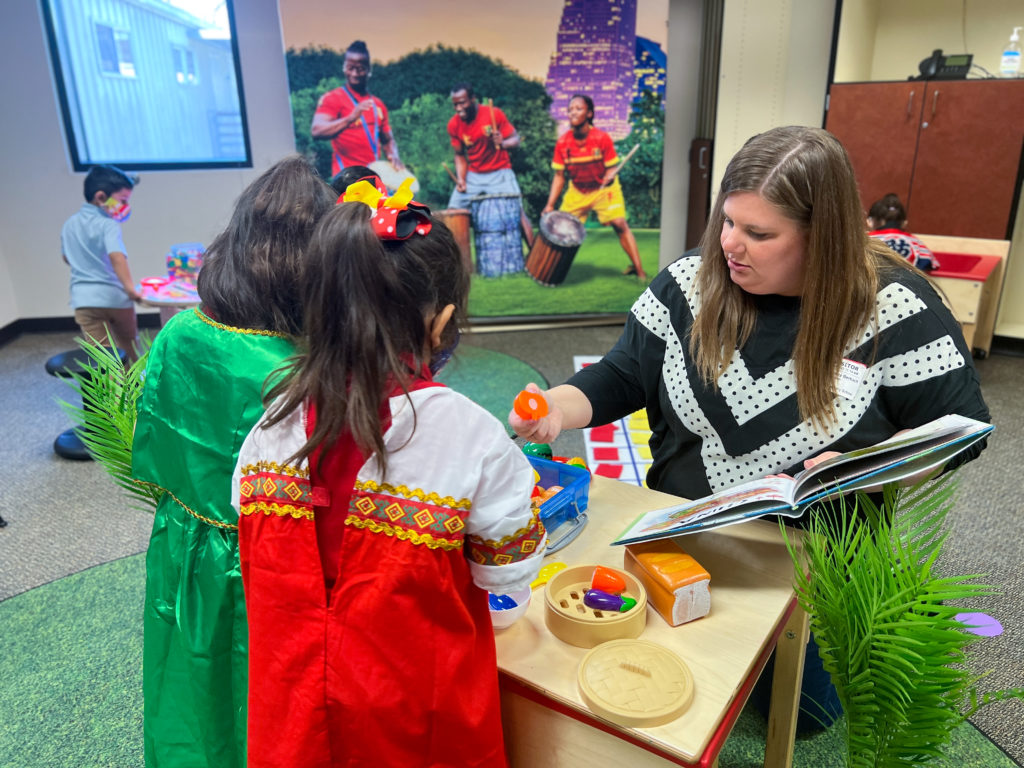
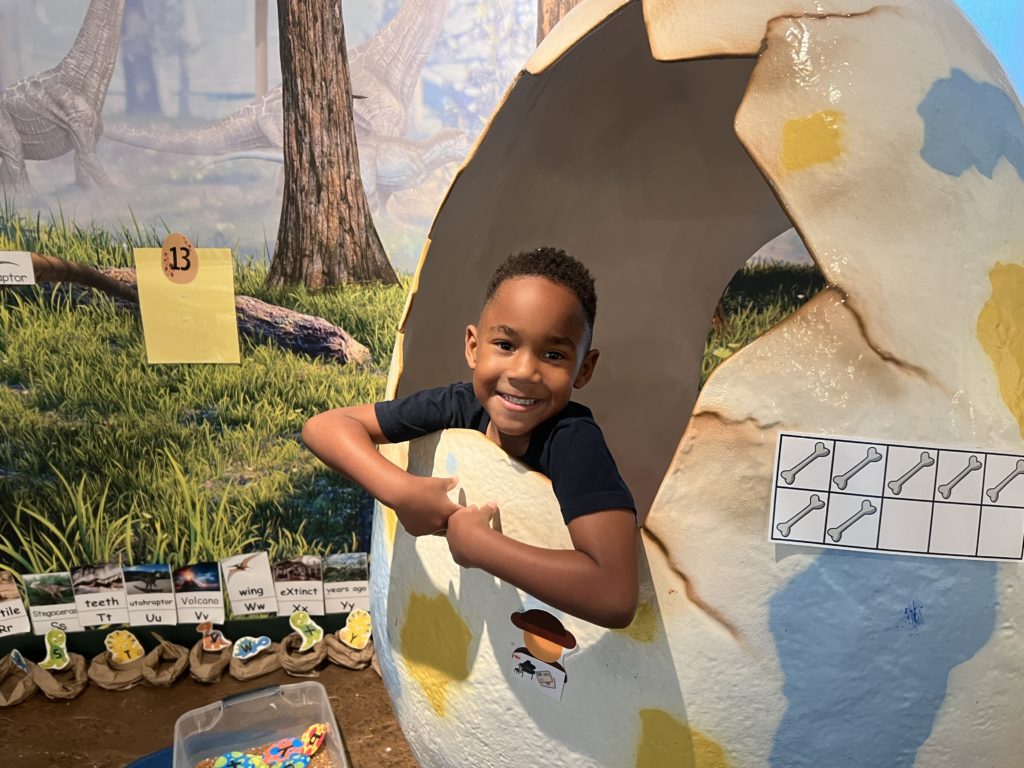
Students in these innovative spaces show an increased desire to attend school, eager to participate in the exciting and diverse learning experiences available to them; in fact, research from the Education Resources Information Center (ERIC) indicates that students in experiential learning programs exhibit higher motivation, better attendance, and improved behavior compared to those in traditional settings
While traditional ROI metrics are important, the true ROI of our unique learning spaces is within the lasting impact they have on students’ and educators’ lives. By providing immersive, experiential learning environments, Exploration Zones spaces are shaping the future generation of students and educators, equipping them with the skills, knowledge, and perspectives they need to succeed in an ever-evolving world.
To learn more about how Exploration Zones spaces can benefit your school district or to explore pricing options, connect with us today.
